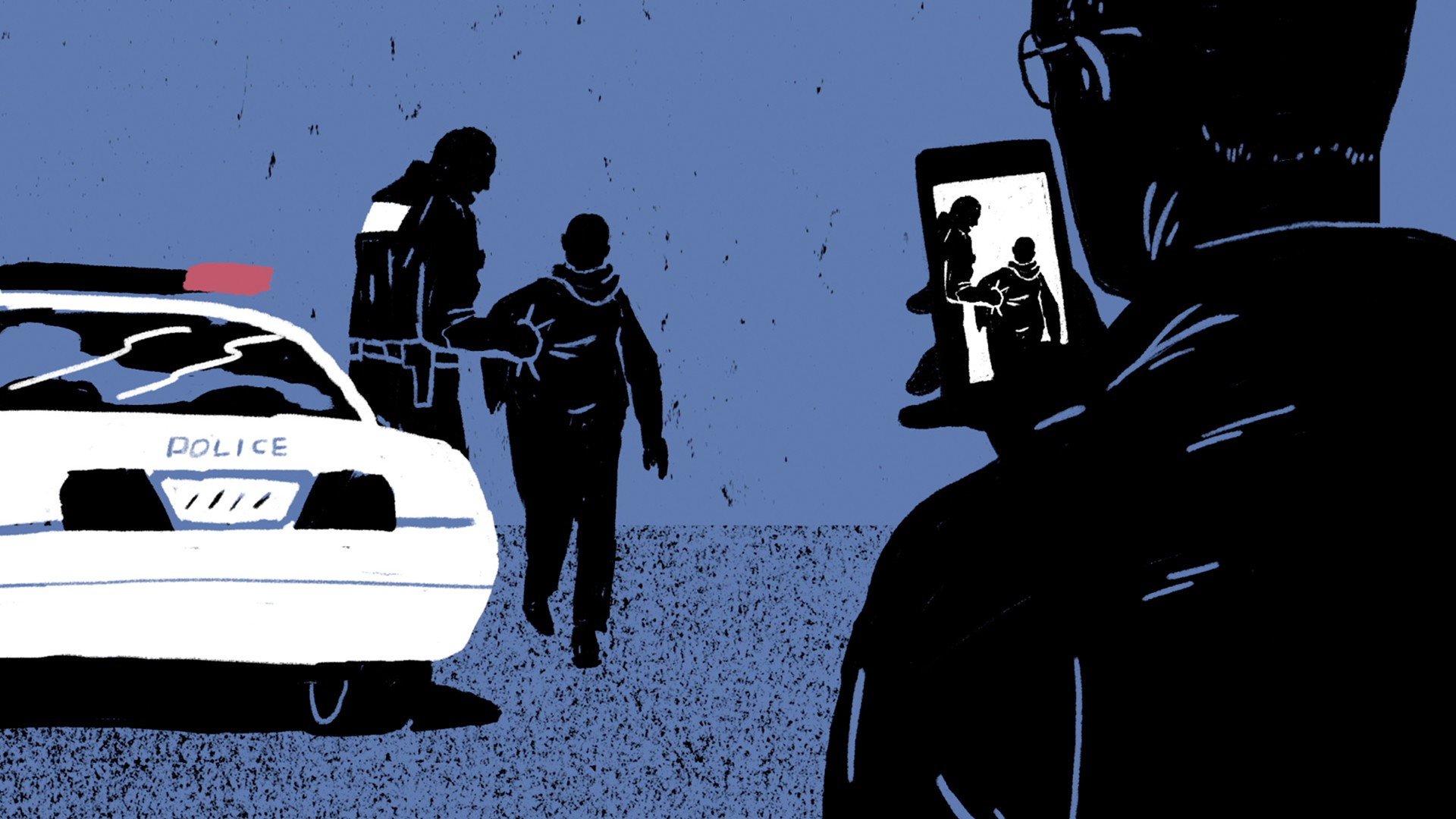The progress these trends represent is incredibly encouraging, and prove the best way to normalize something based on fear or ignorance of others is to talk about it more. But even as this narrative expands, it's stalled in a version that's more or less converged around white people, mostly white women like myself. At times it's not dissimilar to white feminism, wherein we congratulate each other on our progress without acknowledging that not everyone's risk factors in this space are equal. When we talk about mental health, about personal experiences and stigma and treatment options, we need to also be talking about how those things are informed by white privilege.White people, and specifically white police officers, don't fear me when they look at me, and because of that I can drive a car, sell cigarettes, hold a toy gun, hold a toy gun from Walmart inside a Walmart, or wear a hoodie in a way a black person cannot. In that same vein, I can afford a mental breakdown in a way a black person cannot, which is to say without a sizeable chance it will get me shot. The officer who killed 17-year-old Laquan McDonald started shooting within seconds of arriving and kept going until he was out of bullets, despite the fact that McDonald, who had PTSD, had been walking away."When we talk about mental health, about personal experiences and stigma and treatment options, we need to also be talking about how those things are informed by white privilege. "
Watch some more video from VICE:

Phillip White, a 32-year-old black man in South Jersey, died in police custody after an anonymous 911 caller reported him "freaking out," "going crazy," and "screaming." Video footage shows White lying facedown in the street, being beaten by an officer and mauled by a police dog. A black man in manic conversation with himself does not provoke an equal set of responses to a white woman doing the same.In 2015, the Washington Post conducted the first ongoing tally of officer-involved shooting deaths of the mentally ill. Nationwide, about one in four people shot and killed by police officers is in acute mental or emotional distress at the time of their death. As of this writing, police have fatally shot 498 people in 2017. Of those, 151 were known to be mentally ill, nearly half of them white and nearly a quarter black. For reference, our population is about three-quarters white and somewhere around 12 percent black, which fatal interactions with the police are drastically overrepresented within the black community.Are these cases on a spectrum? Absolutely. But even in situations where officers genuinely fear for their lives, that fear is nearly impossible to disentangle from racial bias and ignorance of mental illnesses.Phillip White didn't appear to have been mentally ill, but at the time he was shot he was mentally unstable -- his autopsy showed PCP in his system -- which in terms of police response amounts to much the same thing. The attorney for the officers who shot White claimed the PCP had endowed him with "super-human strength," and that definitely could have been true. But it's also true that no amount of PCP I could ever ingest would make me as feared in this country as a black man going about his business, and that the narrative of terrifying superhuman strength is leveled against black victims all the time, whether drugs are involved or not.
Justifying deadly force against mentally ill black victims rarely has to do with actual strength or size. Charleena Lyles was "tiny," and also several months pregnant. Kenneth Chamberlain Sr., a veteran with bipolar disorder who triggered his medical-alert pendant by accident, was 68-years-old when police showed up at his apartment, harassed him with racial slurs, and shot him. Deborah Danner, the author of a widely shared essay about her schizophrenia, was 66 when she was shot by a team of officers familiar with her and her medical history. James Hall, a "peaceful" man with schizoaffective disorder, went into a convenience store to browse and ended up dead, surrounded by at least 10 officers and a dog. Hall was legally blind.There's not really any such thing as emergency mental health services; people can call 911, and that's about it. Yet most police agencies still don't train officers in how to respond to mental health crises. Meanwhile, black people already risk being shot by police even if they behave perfectly, and it's difficult enough for someone to behave perfectly when they're afraid. Rarely does someone behave perfectly when they're psychotic.Ezell Ford, a black man with schizophrenia and bipolar disorder, was shot while resisting arrest after being racially profiled near his home. Dontre Hamilton, who had schizophrenia, resisted and was shot 14 times. Both Phillip White and Charleena Lyles had multiple interactions with local police in the days leading up to their deaths; the officers who shot them knew the condition they were in."Even in situations where officers genuinely fear for their lives, that fear is nearly impossible to disentangle from racial bias and ignorance of mental illnesses."
Social progress is always uneven, and every movement has its blind spots, unconscious or otherwise. White feminism forgets women of color; second-wave feminism explicitly excludes trans women; the body-positivity movement's celebration of rightfully saying "fuck you" to the status quo doesn't always extend to those who are actually obese, or disabled. Mental health activism risks leaving behind people of color, particularly those who are severely ill. We praise each other for seeking treatment, but often fail to acknowledge that not everyone has access to the same resources. We encourage the mentally ill to share their stories but don't leave enough room for the fact that these illnesses are even more heavily stigmatized in communities of color.Read more: These Are the Past Social Movements That Actually Make America Great
We're growing so accustomed to white people talking about anxiety and depression that we associate the conditions primarily with them -- but both illnesses are actually more common among black Americans than in the general population. Racism itself has been shown to cause psychological distress similar to trauma. During college -- already the age when many mental illnesses are likely to surface -- black students are less likely to seek counseling, going undiagnosed at double the rate of their white peers.This country has erased minorities from their own narratives since its inception, and mental health activism achieves no complete victories by going the same way. It also doesn't benefit anyone living with any mental illness, of any race or gender, for the prevailing narrative to be that such things only afflict under-occupied white women, except when they're afflicting violent, dangerous black men. We're increasingly comfortable looking at mental illness when the person talking about it or asking for help is stable. But we've failed, unequivocally, at supporting people when they're in crisis, black people most of all."This country has erased minorities from their own narratives since its inception, and mental health activism achieves no complete victories by going the same way."
